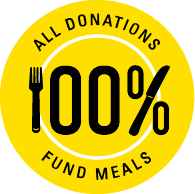
100% of your donation will be used for the preparation and delivery of meals, thanks to our partnership with the City of New York, Citymeals board members and certain designated grants for administrative expenses.
Support CitymealsProviding homebound elderly New Yorkers with daily nutrition and companionship is the most important aspect of our work — but it isn’t the only thing we do. Our aging initiatives connect our vulnerable older neighbors to vital services that help them live independently.
Our deliverers are sometimes the only people who see our meal recipients on a regular basis. They become familiar with our meal recipients’ personalities and behaviors. Because of this, they are often the first to notice if something is wrong. To make the most of this relationship, meal delivery staff receive additional training on two serious concerns for the community we serve.
The Weinberg Center for Elder Abuse Prevention at The Hebrew Home at Riverdale and the Manhattan District Attorney’s Office taught staff to recognize the signs of elder abuse and how to report it.
We have also partnered with CaringKind to educate employees on the warning signs of Alzheimer's, a debilitating and widespread disease. These skills will empower our deliverers to serve the meal recipients they interact with every day more effectively.

100% of your donation will be used for the preparation and delivery of meals, thanks to our partnership with the City of New York, Citymeals board members and certain designated grants for administrative expenses.
Support Citymeals